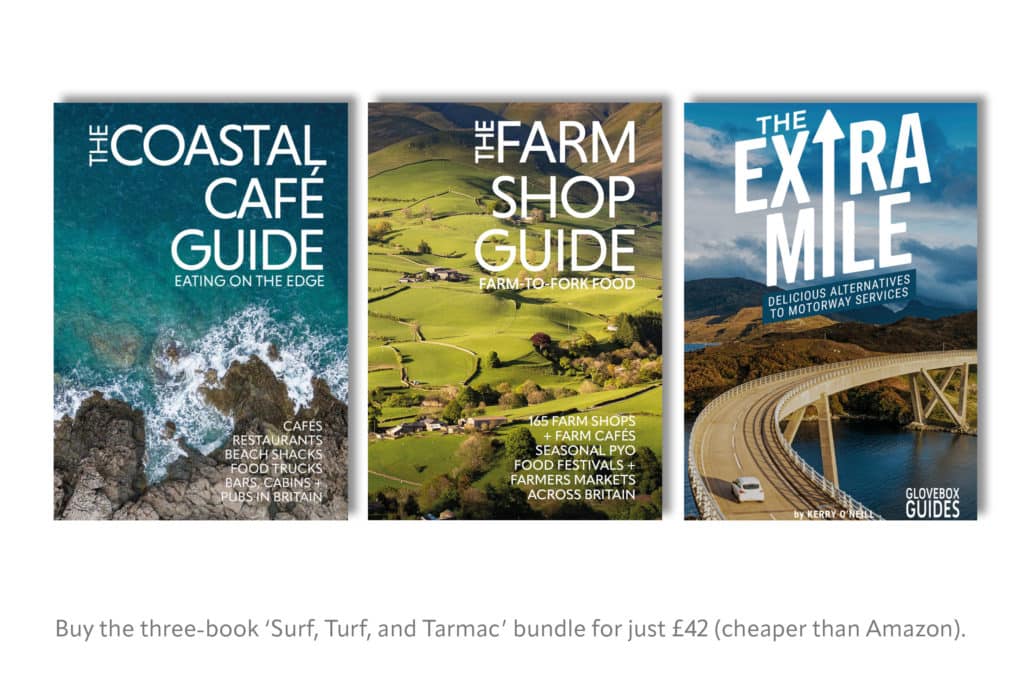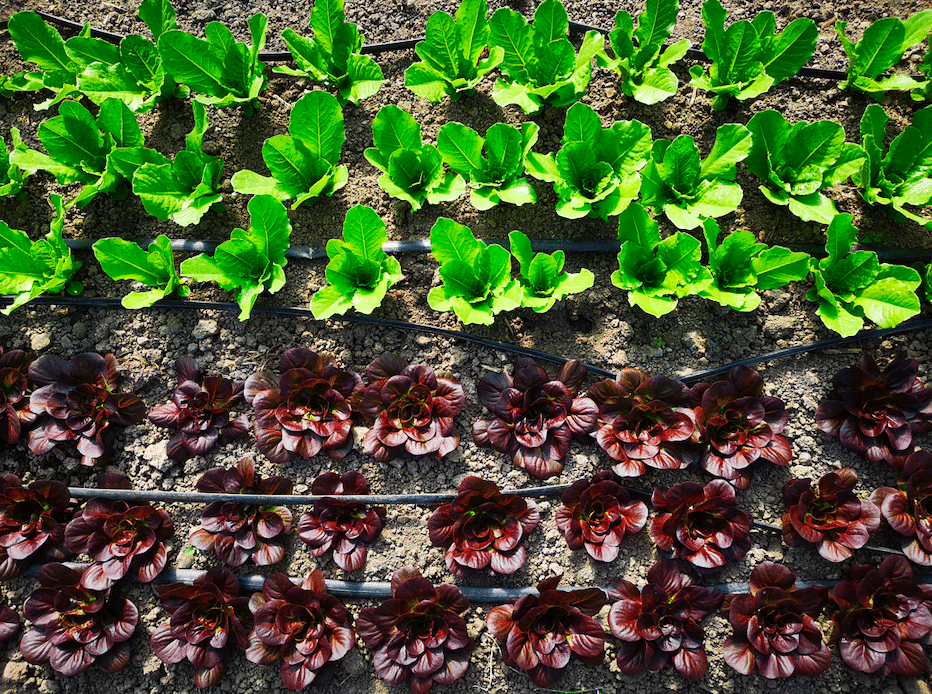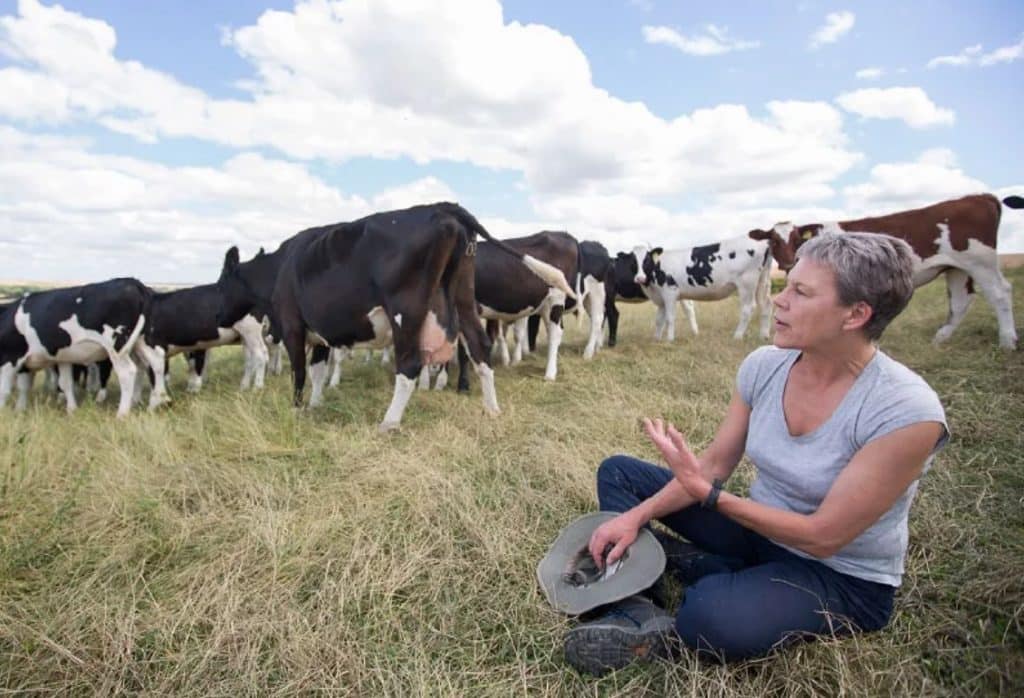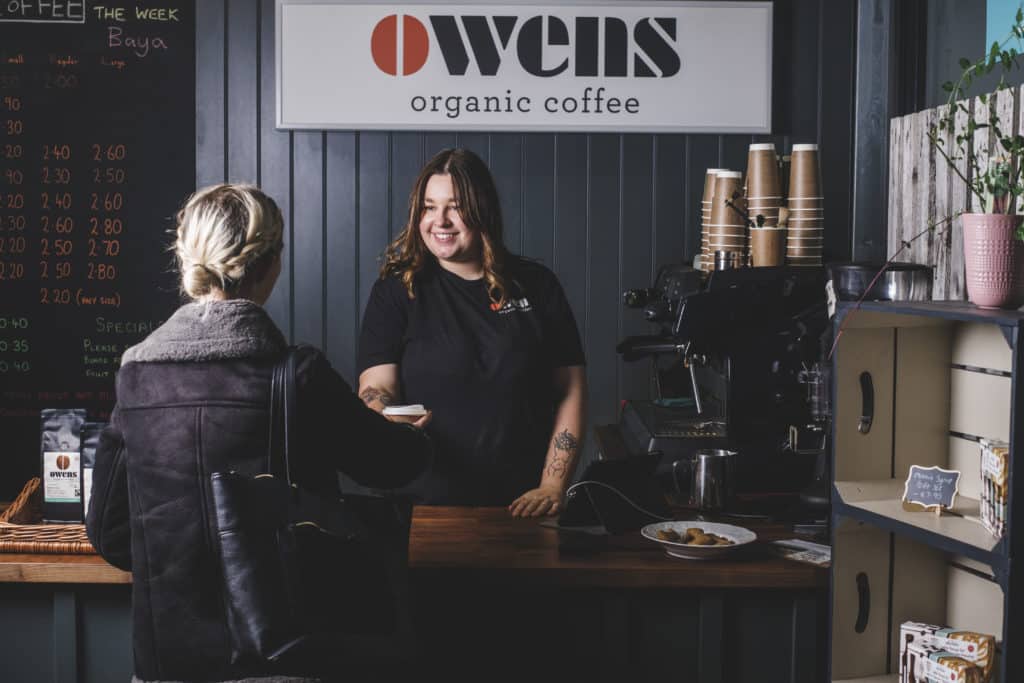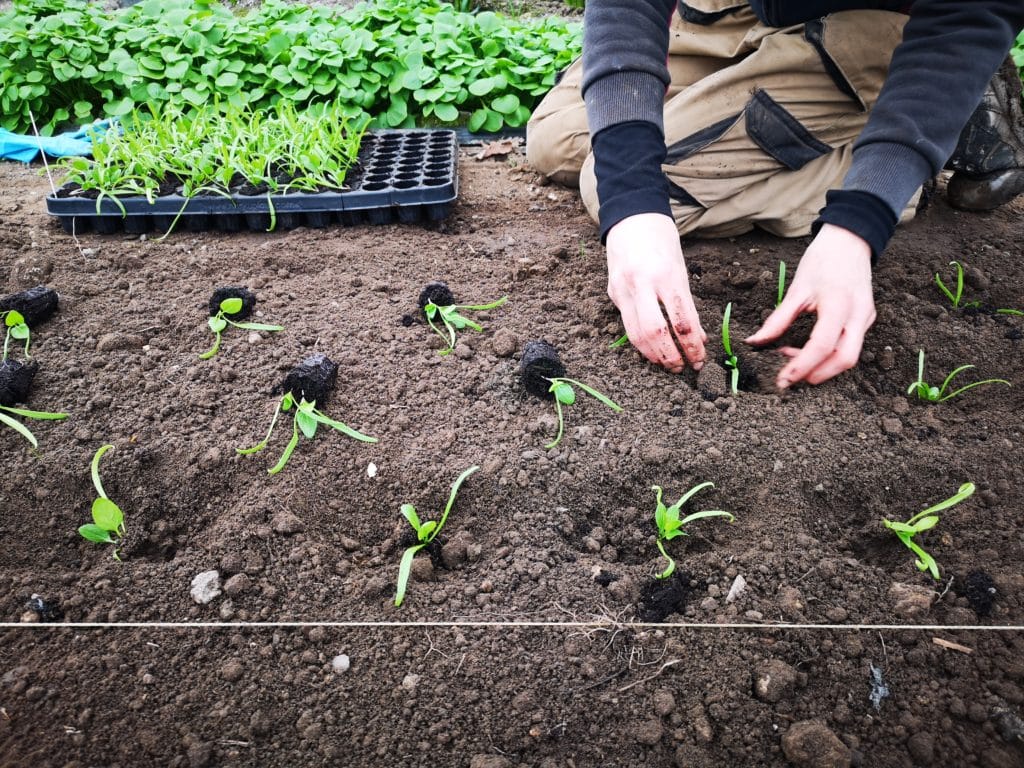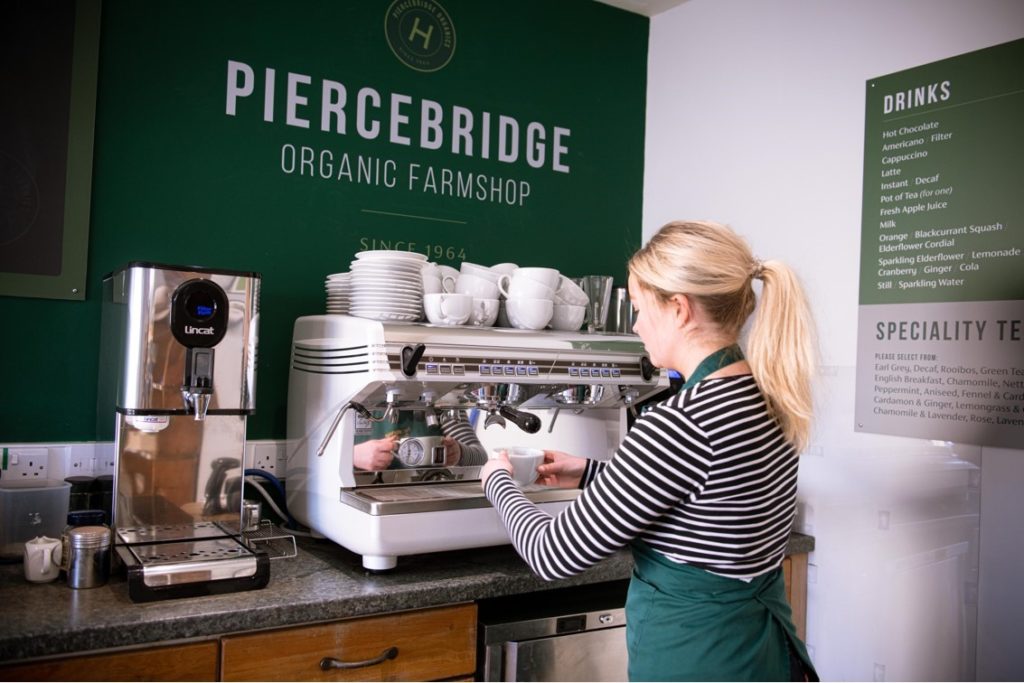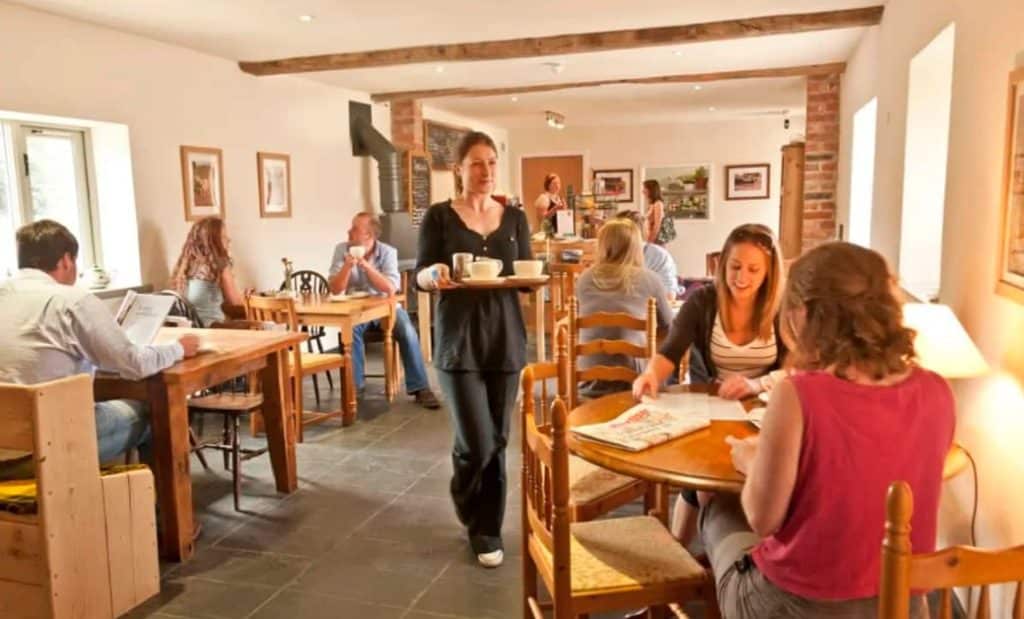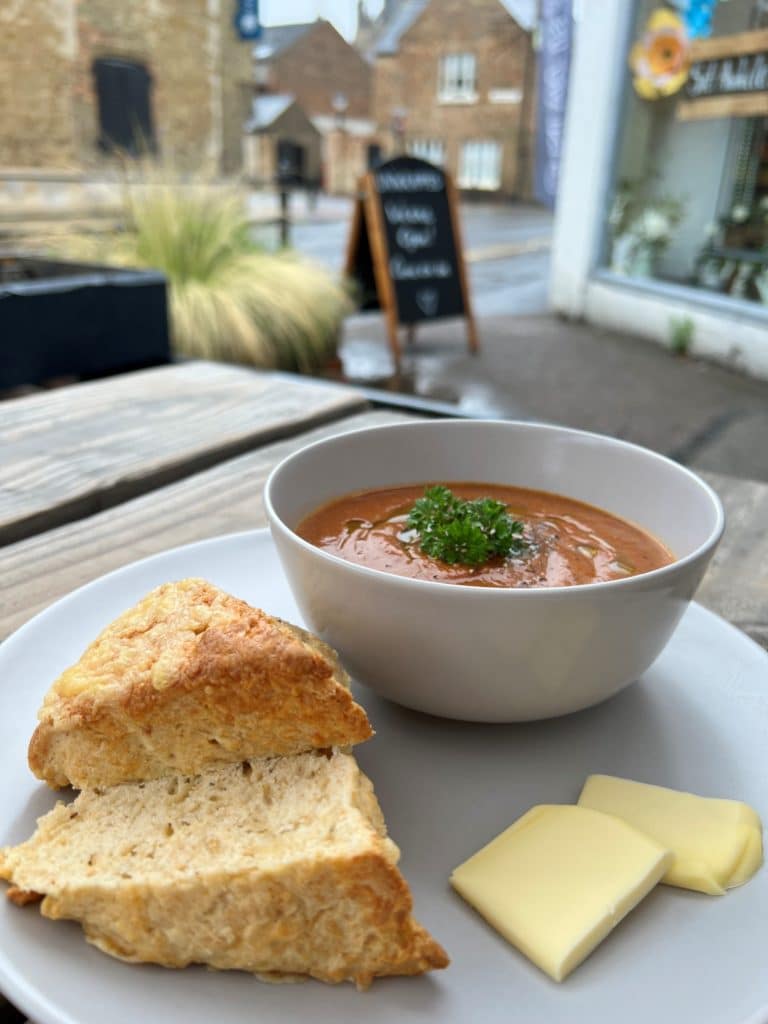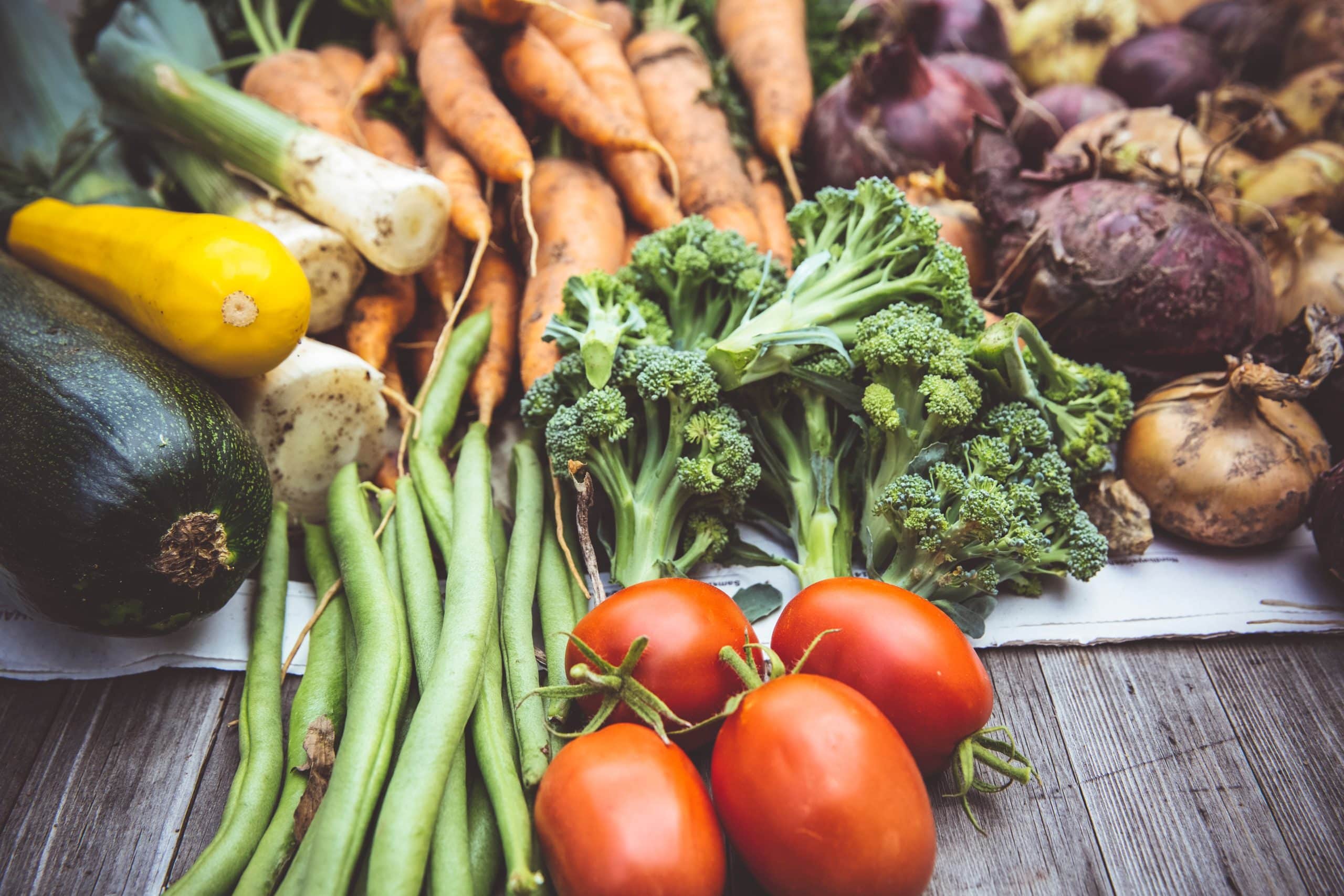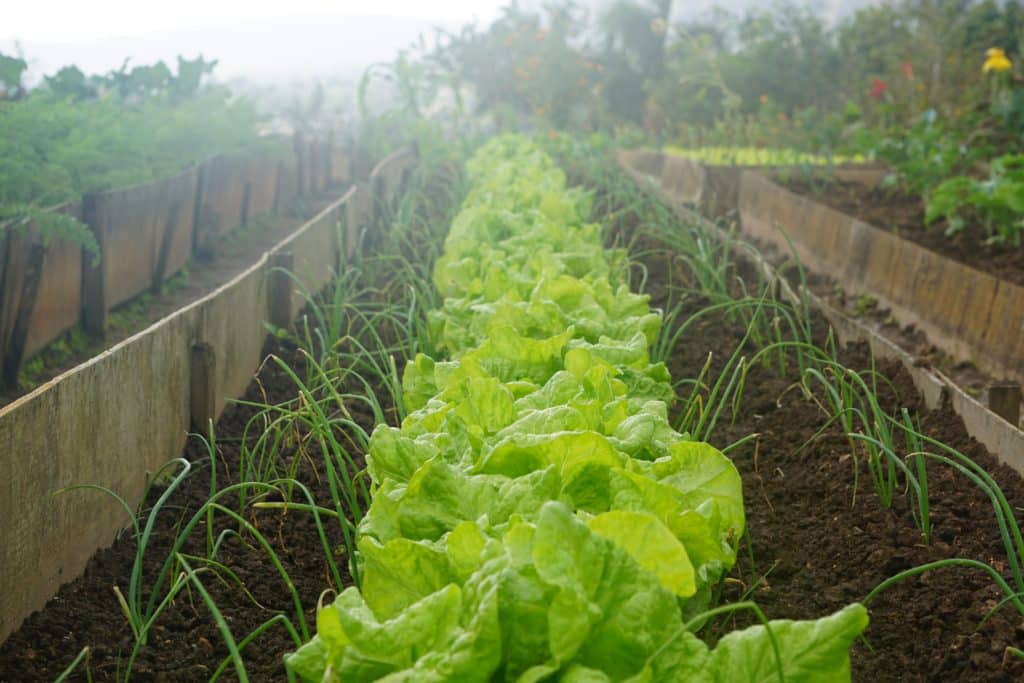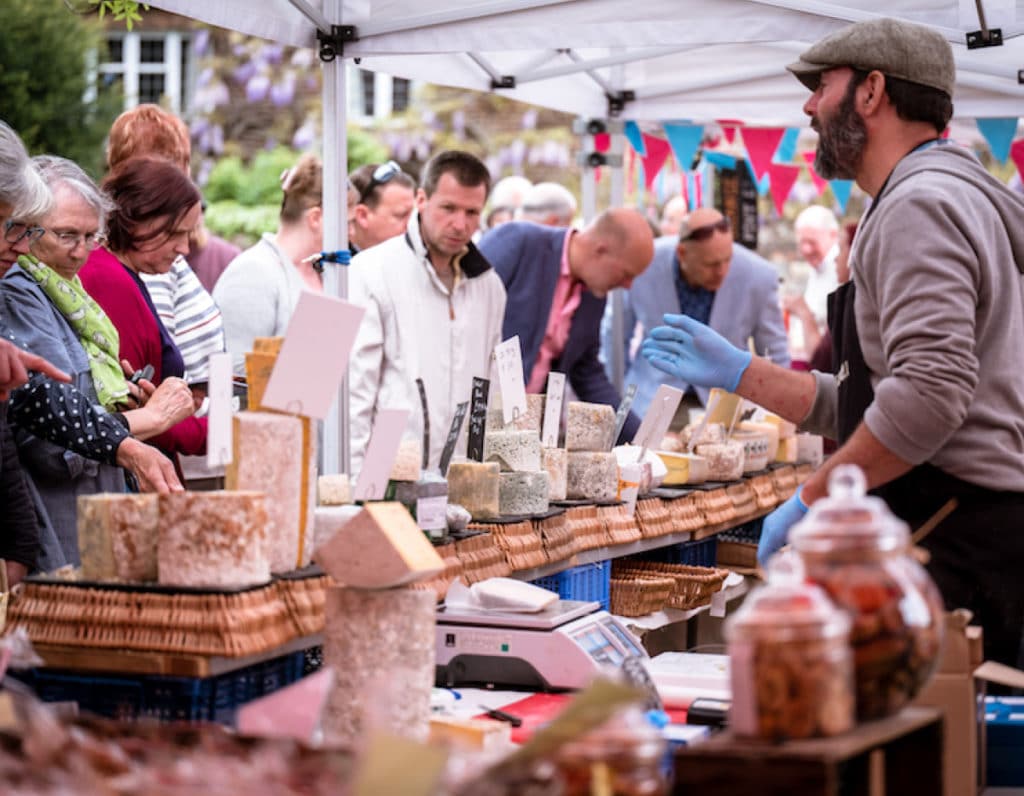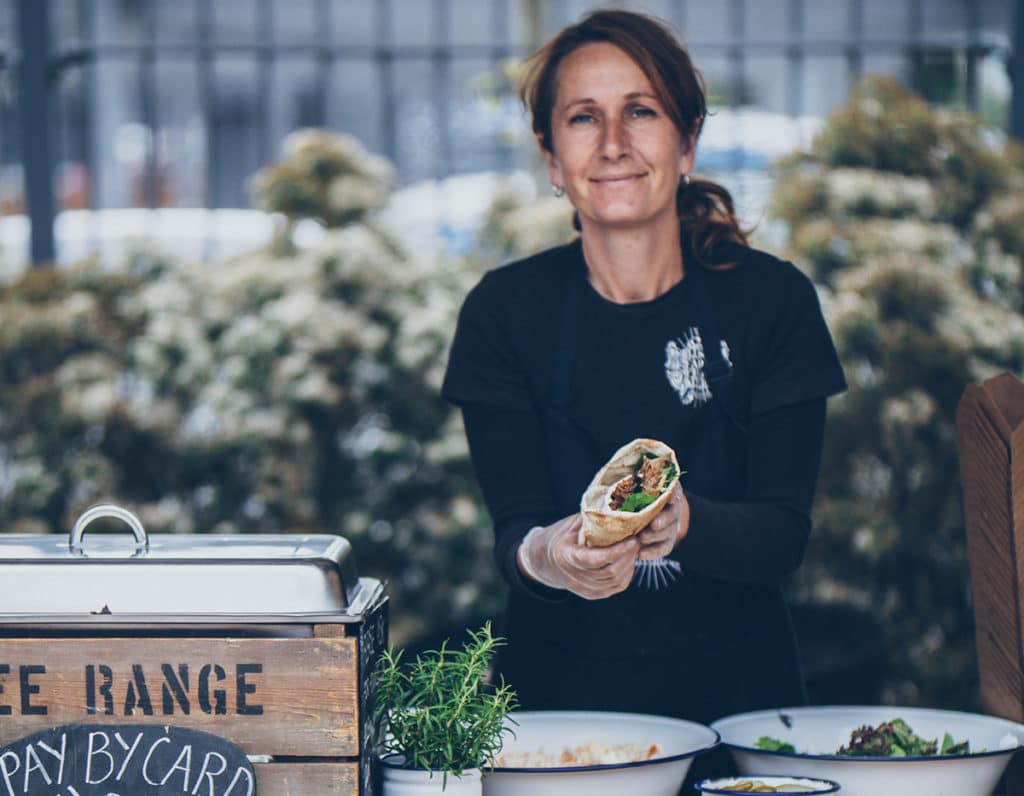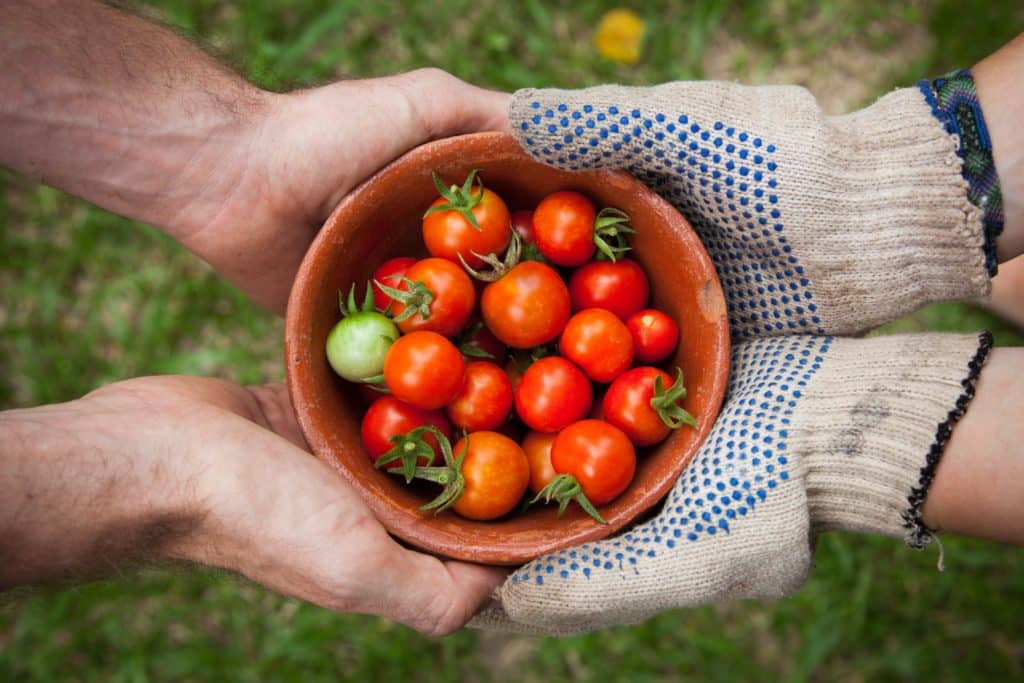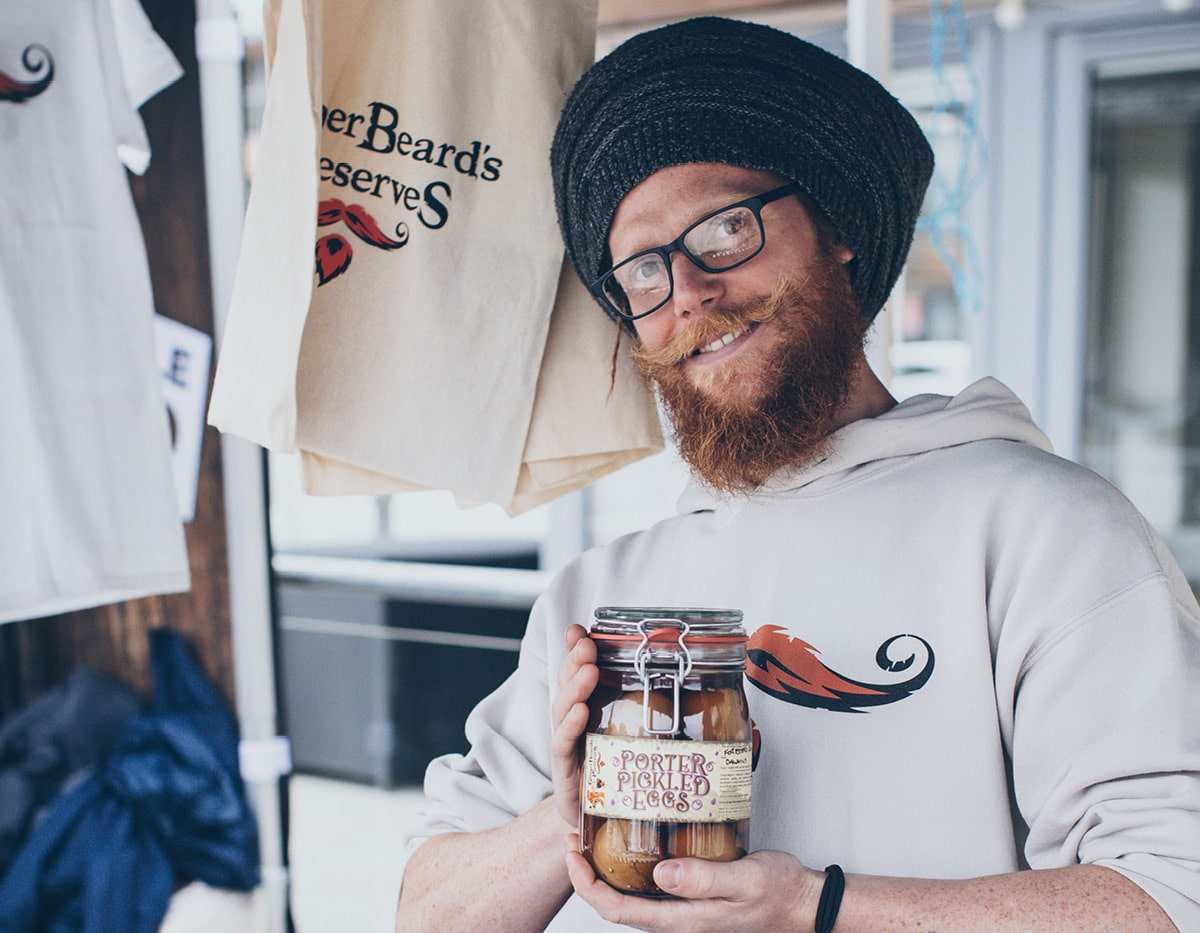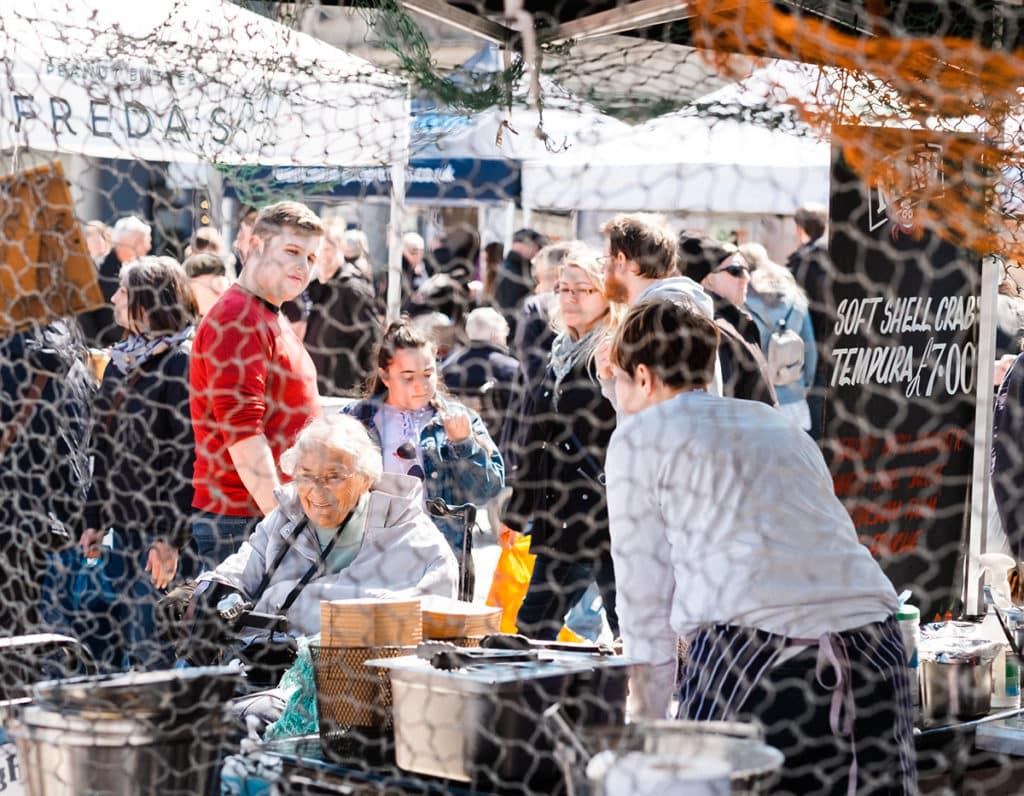
The Coastal Café Guide gathers a huge cross-section of the best coastal cafés in Britain into one brilliant guide. For cafés by the sea, beachside eateries, and restaurants with a sea view, look no further. Upon release this summer, it quickly became an Amazon #1 hot New Release, and then a travel category #1 bestseller. Need a present for the swimmer, surfer, or seafood lover in your life? Voilà!
Who’s the guide for? Packed with surf-friendly and post-swim ready cafés, it’s for anyone looking for a small, local, independent café on the coast. It’s for those who love to stop for a coffee after going wild-swimming at the beach, it’s got cafés that make great stop-offs for coast-path walkers, and it has restaurants offering sustainable seaside dining across the land. Check out a few of our favourite coastal cafés below.
To buy The Coastal Café Guide – it makes a great gift for wild-swimmers, a wonderful Christmas present for surfers, or the perfect gift for someone planning a coast-path walk – visit our online bookshop today for single and great-value book bundle deals.
The Boathouse, Uphill, North Somerset
Gemma and Giulio have revolutionised this nautical and very dog-friendly coastal café near Uphill’s marina, lake, and touring park. A summer hot-spot, it is a short stroll from the southern end of Weston-super-Mare beach so is perfect for those seeking a café near the sea in Weston. The colourful outdoor area has a beach-striped coffee and gelato hut. Here, tropical sorbets, riotously rich gelatos (all homemade on site) and seasonal specials create dilemmas for ice cream aficionados.
The Boathouse is favoured by those with families, dogs, and bikes, as it gives onto the Brean Down Way walking and cycling route. Yachties and rowers from the local gig club also swing by for epic cakes, posh fish finger sandwiches, big breakfasts, and…did we mention the local gelato? Pick up doggie treats before hitting the beach, or climb Uphill Beacon for views across to Glastonbury Tor or the hills of Wales. An ideal café near the coast in Uphill, Weston-super-Mare, North Somerset.
The Sandy Salt Pig, Studland, Swanage, Dorset
Looking for a café on the coast right next to the sea in Dorset? Look no further. This café is a coast-path walker’s dream. “Not many stories begin with the words “I worked locally as a shepherd for 14 years…” but this one does. The Salt Pig coastal café and kiosk is well loved locally. Its founder, James, worked the coastal fields near Kimmeridge Bay and now brings the region’s distinctive flavours to the fore through The Salt Pig’s farm shops, cafés, and now The Sandy Salt Pig beach cabin: a refreshing sight for coast-path weary eyes. It’s the perfect post-swim café or food stop for beach goers.
At The Salt Pig’s farm, rare-breed pork is reared with landscape, nature, and sustainability in mind. James’s goal is for locals to connect to their landscape, to understand the benefits of farming, and to be proud of local produce. Kick your shoes off at a beachfront bench to devour a homemade sausage roll or a pulled-beef burrito before strolling along Studland’s famed beach with a Purbeck ice cream. If you’ve walked the South West Coast Path or plan to, or seek a gift for someone who’s about to, The Coastal Café Guide is ideal.
The Beach Café, Littlehampton, West Sussex
Super popular when the sun shines, The Beach Café also has one of West Sussex’s coolest watersports hubs. Vast sea views are included, both from inside the club house and up on the rooftop. Of course we had to include it in our book of epic post-surf cafés and for wild-swimmers seeking a café on the coast.
Whether you’ve come to eat or to kitesurf, swim, paddleboard, windsurf, or wingfoil (ask about lessons and kit hire), this friendly place with its surfy vibe has it all. This coastal café was created as a place to share tales of near-misses and heroic surf saves, all fuelled by great food and drink. It is now the beach hang-out for a community that is keen to enjoy all that the ocean offers. Once off the water, head inside for surfer wraps, vegan breakfasts, stone- baked pizzas, and succulent burgers. Visit the West Beach Nature Reserve or stroll along the river Arun while in town.
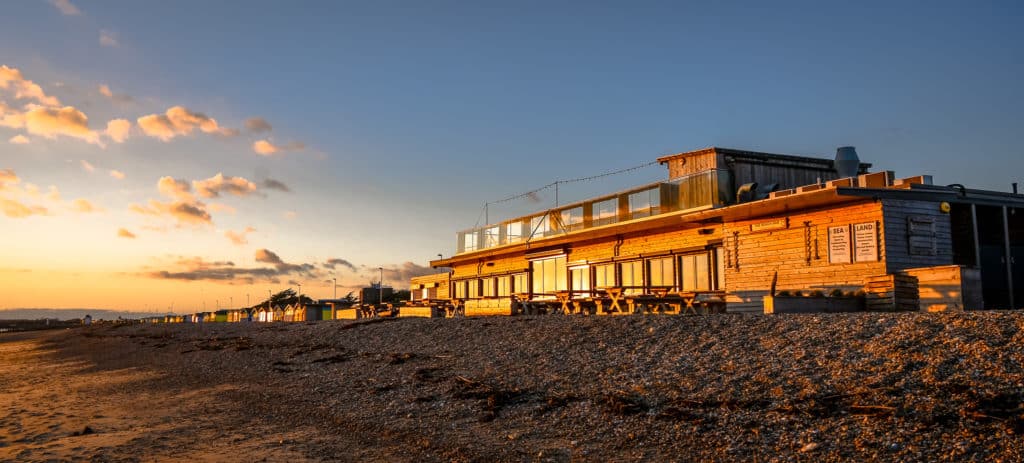
The Norfolk Coffee Pedlar, Burnham Overy Staithe, Norfolk
This is a water’s-edge coffee stop-off with a difference. Sustainable coffee aficionados will love the Norfolk Coffee Pedlar. Many people pivoted in their careers in the wake of Covid…far fewer converted a trike into a mobile coffee shop. Enter Sandy and Dave. Conscious of the environment (and their stunning creek-side location), they serve coffee in beautiful hand-thrown ceramics made by local artists with no disposable cups.
If you want to relax by the shore, or walk the coast path to the beach, you can borrow (or buy) a cup. Taking the boat out to Scolt Head Island? Ferryman John will even drop the cup back for you. Here, locally roasted coffee is served alongside hunks of home-baked cake: the ginger and orange is a firm favourite. Keep your eyes on the skies as, with the Pedlar’s exposed spot, wind and rain can stop play.
The Lookout on the Pier, Scarborough, North Yorkshire
For something a little different in a town you think you might know, head to this fantastic coastal café with its sea view and harbour view tables. Scarborough’s Lookout on the Pier is an integral part of the town’s lively, Grade II-listed working harbour. Evocative boaty sights, sounds, and authentically fishy scents accompany your stroll to this seafood restaurant’s industrial staircase. Head up and into this atmospheric first- floor space, with its striking views across working wharfs and up to the ruins of once-mighty Scarborough Castle. Chef Alex’s house special is the chowder. In fact, ‘all seafood’ is where he excels.
Secure a popular balcony table in fine weather to get involved with plates of criminally fresh oysters or moules marinières, while lobster dishes parade temptingly around on route to eager tables. The seafood platters are show-stopping. This really is an excellent seafood, seaside, sea-view dining experience. End your day with a trip to the Museum of Coastal Heritage and Geology.
The Beach House, Portobello, Edinburgh
Where to eat on the coast in Scotland? We’ve got a few great coastal cafés in Scotland in our guide, and this beachside eatery is a favourite. In its lifetime, Edinburgh’s Portobello area has made everything from glass and lead to paper and pottery. Today, its prom and award-winning beach attracts a different energy, with events from the Big Beach Busk to triathlon and volleyball meets. Near Portobello’s Sailing and Kayaking Club is The Beach House, a pretty little café with cakes and pastries arriving fresh each day from its own bakery in Leith.
The café prides itself on buying local and organic. Tables have fresh posies and the kitchen garden brims with herbs and fruits. Some end up in the best-selling Porty Smash: Portobello mushrooms, smashed avo, thyme and garlic aioli, balsamic glaze, and pine nuts (topped with an organic poached egg). Try a homemade gelato or summery sorbet, or boost your vitamin C with some local sea buckthorn.
Visit our online bookshop now to discover more about The Coastal Café Guide and its 150 coastal cafés, restaurants by the sea, pubs with sea views, and dog- and family-friendly places to eat at the seaside around the coast of Britain. Bestselling foodie travel guide, The Coastal Café Guide, is available now from Printslinger. Also available as at 2024: The Farm Shop Guide, and The Extra Mile: Delicious Alternatives to Motorway Services. Buy the three-book bundle for serious savings on this tempting trio.
